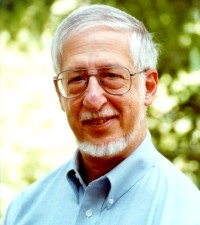This is the first of what I hope will become a monthly feature highlighting the work of scholars who have made significant contributions to teaching & learning in higher education.
I begin with Richard M. Felder, emeritus professor of chemical engineering at North Carolina State University and, perhaps, the most prolific scholar of engineering education in the world. Having carved out a successful research career modelling mixing and diffusion in chemical reactors, Felder turned his attention to teaching in the late 1980’s.
I had been teaching for about 15 years when I first became aware that something was wrong in my undergraduate classes…I would cover material thoroughly in my lectures, giving lots of examples and illustrations of the methods I was presenting, but when I asked questions about it the next day most of the students seemed not to have heard a word I said, and when I gave examinations many of them did terribly. I knew they were all intelligent…and I started to wonder what the problem was.
Felder’s search for answers led him to the literature of cognitive and educational psychology. He began to experiment with active and cooperative learning, writing numerous papers about the impact of these strategies in the engineering context. His latest work assesses the impact of learning objectives and learning styles in science and engineering classrooms.
Felder’s papers are remarkably practical, full of concrete examples and insights. He is an engineer and, thus, understands the culture of teaching in technical disciplines. He develops and recommends teaching strategies with his engineering colleagues and students in mind.
We believe that involvement of students is critical for effective classroom learning; however, much of the basic content of engineering courses is not a matter of opinion. Educational approaches that emphasize process exclusively to the detriment of content will not be considered (Felder, 2000).

If you are a science or engineering educator interested in exploring practical, classroom-tested approaches to innovate your teaching and enhance student learning, consider reading any or all of the following. Felder’s insights are well worth the time…
1. Felder, R. M. (1987). On creating creative engineers. Engineering Education, 77(4), 222–227.
My personal favourite! In this paper, Felder describes three unusual ‘exercises’ that can easily be incorporated into traditional quantitative problem sets to increase the creative problem-solving skills of students. He includes ‘sample exercises’ used in both 3rd-year and graduate-level chemical engineering courses, discussing students’ reactions to these novel assessments and potential grading strategies. Felder’s insights are easily extrapolated to other technical disciplines.
Part of a series devoted to engineering education in the new millennium, this piece recommends seven teaching techniques that have demonstrated clear success in the engineering context. Each broad recommendation is accompanied by concrete, classroom-ready suggestions as well as justifications based upon decades of educational research.
In this short piece, Felder addresses common shortcomings of traditional science and engineering examinations and provides straightforward advice to address them. A timely read for those of us in the process of developing or retooling our upcoming finals!